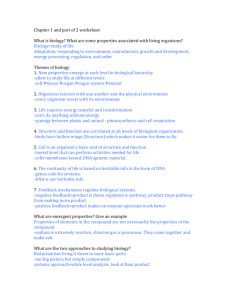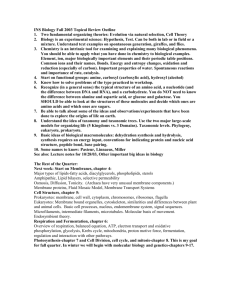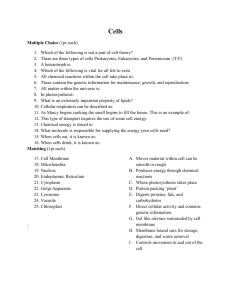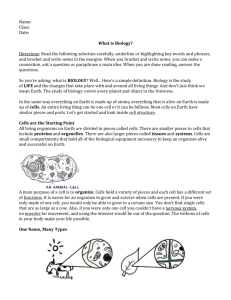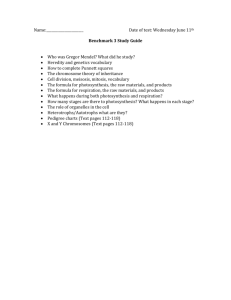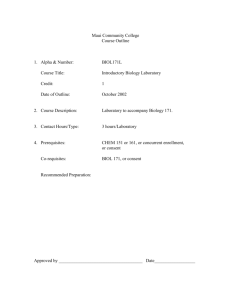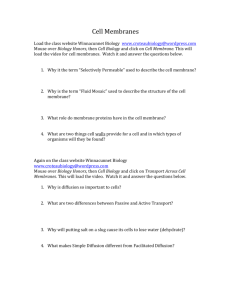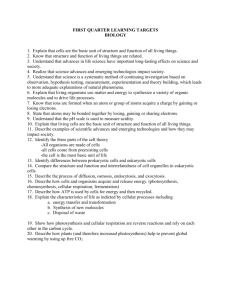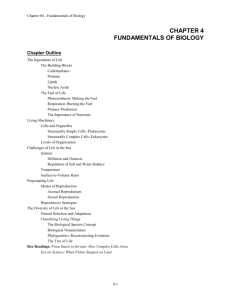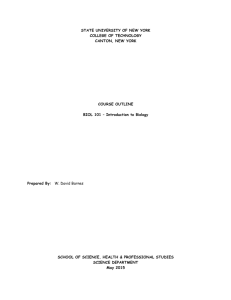Cell Biology Questions
advertisement
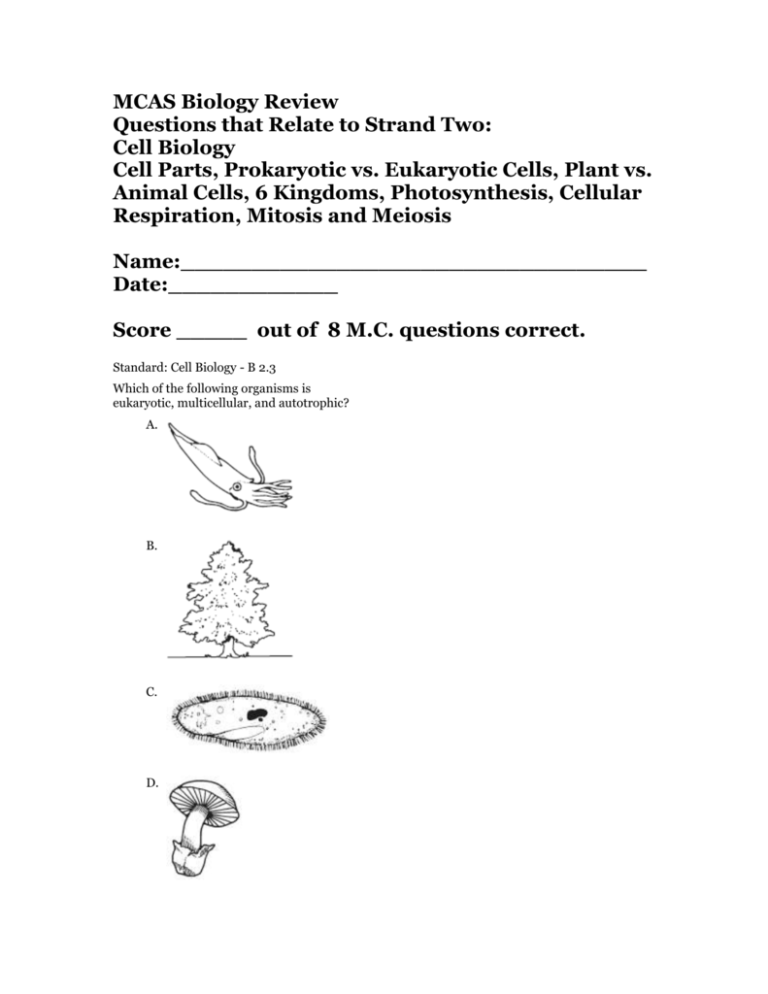
MCAS Biology Review Questions that Relate to Strand Two: Cell Biology Cell Parts, Prokaryotic vs. Eukaryotic Cells, Plant vs. Animal Cells, 6 Kingdoms, Photosynthesis, Cellular Respiration, Mitosis and Meiosis Name:_________________________________ Date:____________ Score _____ out of 8 M.C. questions correct. Standard: Cell Biology - B 2.3 Which of the following organisms is eukaryotic, multicellular, and autotrophic? A. B. C. D. Standard: Cell Biology - B 2.2 The illustrations below represent two different cells. Which of the following statements best identifies these two cells? A. Cell X is a prokaryotic cell and cell Y is a eukaryotic cell. B. Cell X is an archae cell and cell Y is a eubacterial cell. C. Cell X is a red blood cell and cell Y is a muscle cell. D. Cell X is a plant cell and cell Y is an animal cell. Which of the following functions does active transport perform in a cell? A. packaging proteins for export from the cell B. distributing enzymes throughout the cytoplasm C. moving substances against a concentration gradient D. equalizing the concentration of water inside and outside the cell Which of the following is a main function of the cell wall? A. to store carbohydrates for later use B. to give the cell a rigid structure C. to package proteins for export D. to carry out photosynthesis Standard: Cell Biology - B 2.1 Which of the following statements correctly matches a cell part with its function? A. The cell membrane packages lipids for export. B. The mitochondria perform photosynthesis. C. The lysosome digests molecules. D. The nucleus produces energy. Standard: Cell Biology - B 2.5 Which of the following most likely happens in the cells of a person running in the Boston Marathon? A. The respiration rate increases to produce more ATP. B. The replication rate increases to produce more DNA. C. The photosynthesis rate increases to produce more sugars. D. The cell division rate increases to produce more muscle fibers. The following section focuses on the interactions of organisms in a food web. Read the information below and use it to answer the four multiplechoice questions and one open-response question that follow. A partial food web for organisms in Yellowstone National Park is shown below. Close Window Questions are on the next page!!!! Which process do the animals in the food web use to convert energy from food into ATP? A. cellular respiration B. osmosis C. photosynthesis D. transcription Which organism in the food web is classified into kingdom Fungi? A. Idaho fescue B. king bolete C. migratory grasshopper D. yellow-bellied marmot Open Response Questions!!! Standard: Cell Biology - B 2.1 The diagram below shows a cross section of part of a cell membrane. a. Describe the basic structure of the cell membrane. b. Describe two primary functions of the cell membrane. c. Explain how the structure of the cell membrane allows it to perform the functions described in part (b). Standard: Cell Biology - B 2.2 The drawing below represents an organism that a student observed when examining a sample of pond water with a light microscope. The student identified this organism as a prokaryote. a. Is the student's identification accurate? Explain your answer using information from the diagram. b. Identify three similarities between the cells of prokaryotes and eukaryotes.

